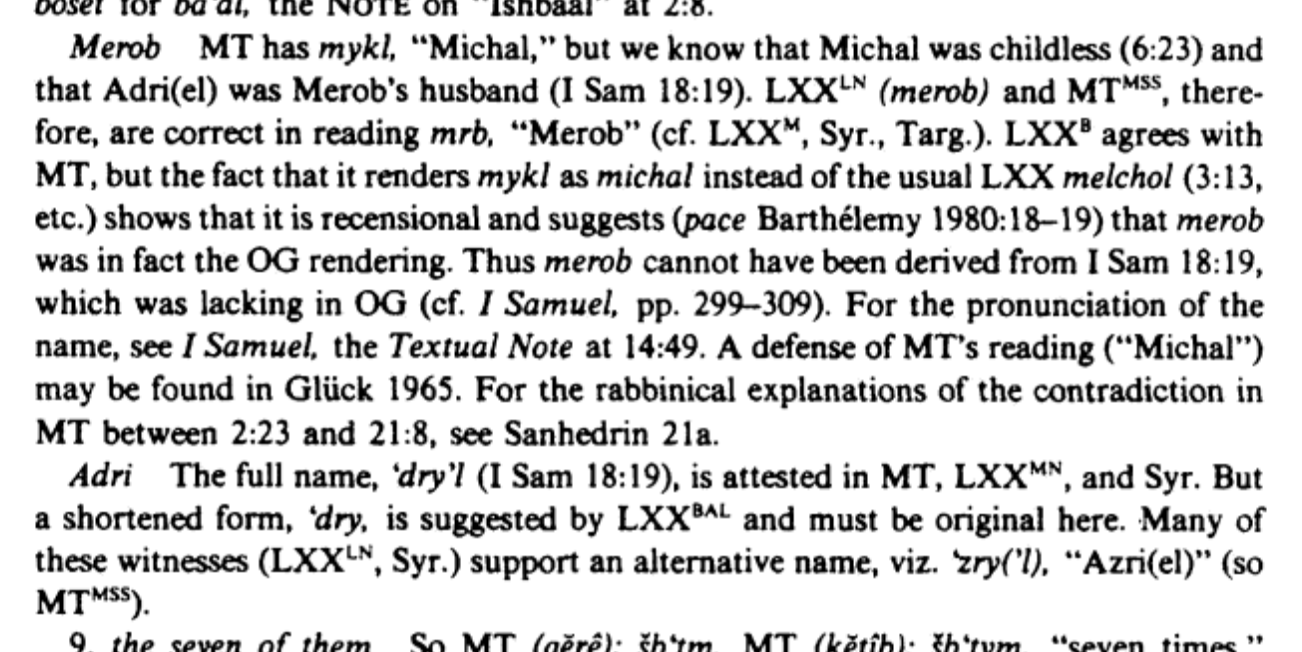2 samuel 6:23 (KJV)
23 Therefore Michal the daughter of Saul had no child unto the day of her death.
2 samuel 21:7-9 (KJV)
7 But the king spared Mephibosheth, the son of Jonathan the son of Saul, because of the LORD'S oath that was between them, between David and Jonathan the son of Saul. 8 But the king took the two sons of Rizpah the daughter of Aiah, whom she bare unto Saul, Armoni and Mephibosheth; and the five sons of Michal the daughter of Saul, whom she brought up for Adriel the son of Barzillai the Meholathite: 9 And he delivered them into the hands of the Gibeonites, and they hanged them in the hill before the LORD: and they fell all seven together, and were put to death in the days of harvest, in the first days, in the beginning of barley harvest.
It would seem in 2 samuel 6 Michal the the daughter of King Saul died without conceiving but later the same Michal is mentioned as having five sons,or is that Saul had another daughter named Michal as well?

